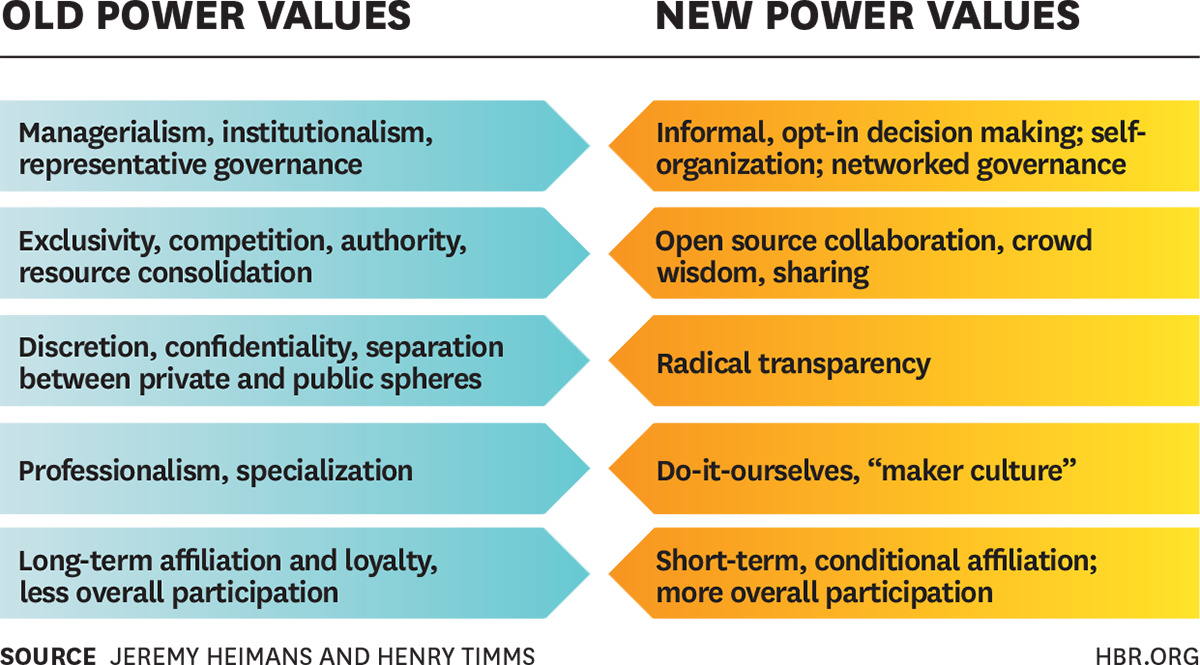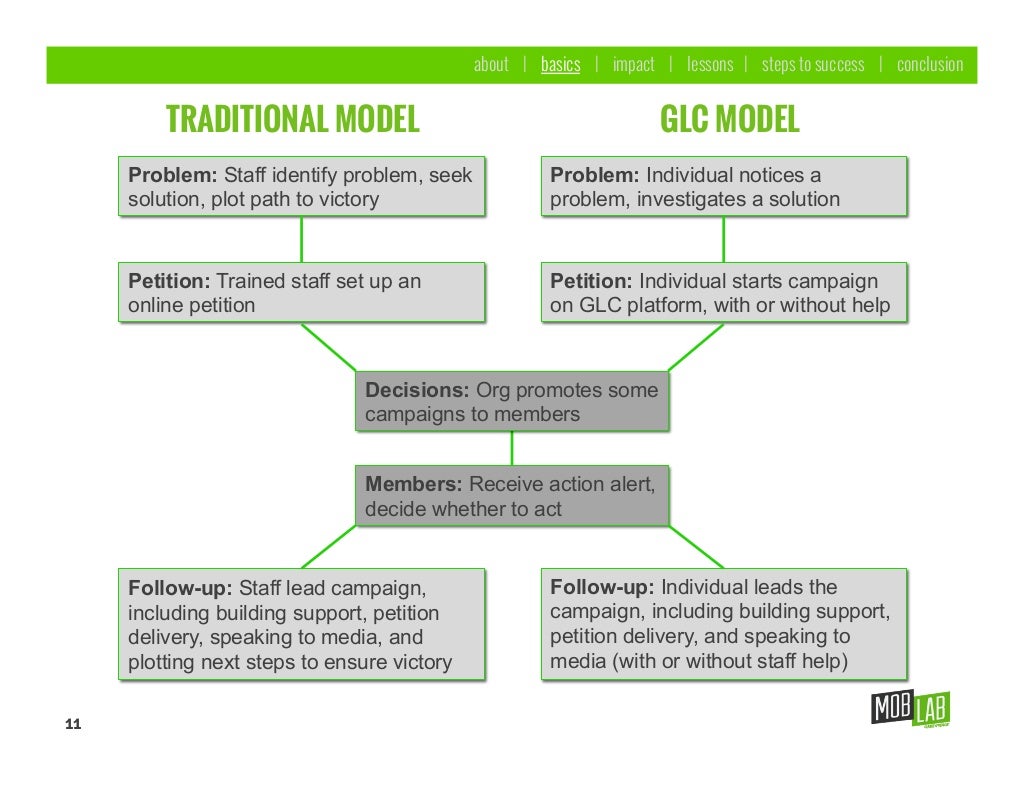Settle in with a cup of tea, here are 14 great reads (in a rough order of how much I enjoyed them) that I’ve shared during 2014 that a worth a read.

1. Understanding New Power – brilliant from Jeremy Heimans and Henry Timms on how the world is changing. A must read (great summary in the graphic above).
2. Changing Trends: New Power, Neuro-Campaigning and Leaderless Movements – just love this paper on key campaigning trends from Hannah and Ben.
3. Purpose Driven Campaigning – 40 key principles for growing social movements drawn from Purpose Driven Church.
4. When the pillars fall — How social movements can win more victories like same-sex marriage – brilliant look at how same-sex marriage advocates in the US build a movement to win.

5. Grassroots-led Campaigns: Lessons from the new frontier of people-powered campaigning – brilliant MobLab report full of wisdom and insight of the people at the cutting edge of grassroots-led campaigns (GLC model in the graphic above). Basically anything MobLab writes is brilliant.
6. From fired up to burnout: 7 tips to help you sustain a life committed to social justice – offered without comment.
7. 6 things today’s breakout campaigns get right – great insight from the always brilliant Jason Mogus
8. “More of an art than a science”: Challenges and solutions in monitoring and evaluating advocacy – also enjoyed this by Jim Coe.
9. Stonewall’s secrets of successful charity lobbying – top tips from one of the best (also learning from Greenpeace here).
10. From Petitions to Decisions – how change.org is continuing to innovate.

11. Inside the Cave – a look at the digital and technology behind the Obama 2012 campaign (and here is more on how the campaign used twitter)
12. The Art of Coalition Campaigning – brilliant set of reflections from Ben Niblett.
13. 14 lessons from the Scottish referendum – useful reflections from the UK political event of the year (more here)
14. Rage Against the Machine – Lessons from Guzzardi–Berrios Race – how a 26-year-old former journalist organised to get elected in Chicago. Great lessons about working with the grassroots (and here on how to lose your seat when your a high-profile US politician).
Tag: Obama
Using the web like Obama
Joe Rospars, the new media director of the Obama Presidential campaign spoke at the excellent Labour 2.0 conference last weekend.
He had three lessons for progressives looking to organize on the web.
Build real relationships through content – The web is about getting your message. It’s not just about raising the candidates profile, it’s about showing people what the candidate stands for – he pointed out that not all the videos and content included Obama, much of it was about the message of Hope and Change.
He also cautioned against simply using a website as another channel for press releases and TV ads. He highlighted that for the Obama campaign written contents was really important. They invested heavily in recruiting people to write for the blog and used it as a space for storytelling the experiences of people linked to the campaign, or who had been inspired for the first time
Put people to work – This was a campaign about inspiring people online to do something off line. The campaign used the web to get people to do the traditional campaigning. They incorporated traditional organising tools into the website, a new approach to an old problem. Obama was originally a community organiser.
For example the web contained details for the phone bank where people could call undecided voters, allowed people to organize (and promote)local events, many of which formal Obama campaign staff had nothing to do with, or use it as a way cheaply distributing resources to field staff. The web was able to lower the barriers to entry for these activities, including many people who hadn’t been involved before.
It wasn’t about the money – The web was about raising money in ways that hadn’t been done before, and using new ways to do this. For example the ‘Dinner with Barack’ fund raising drive, which allowed all those who gave $10 or more to the campaign the opportunity to have dinner with Obama.
More from the conference to come over the next few weeks.